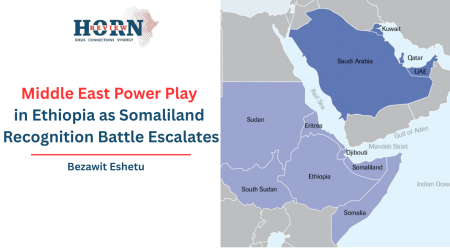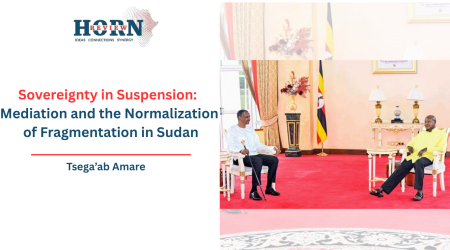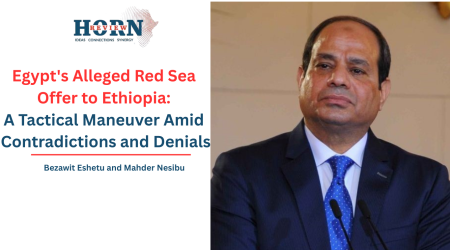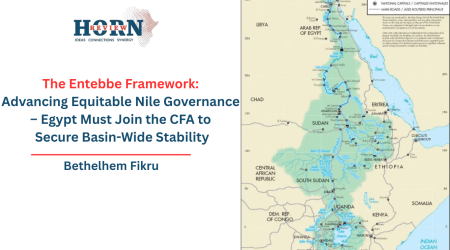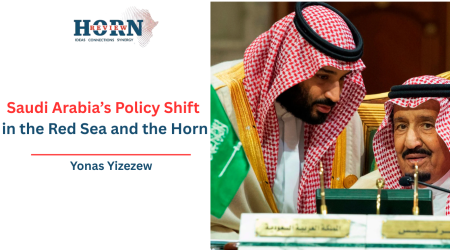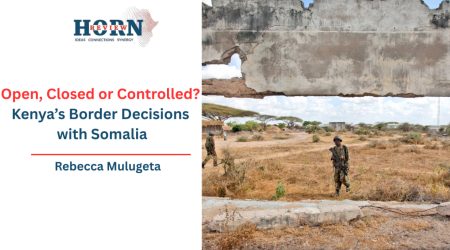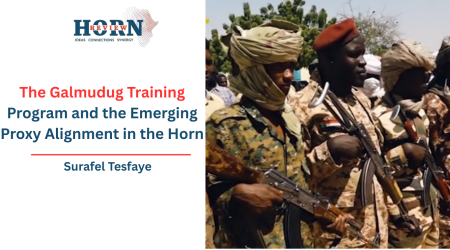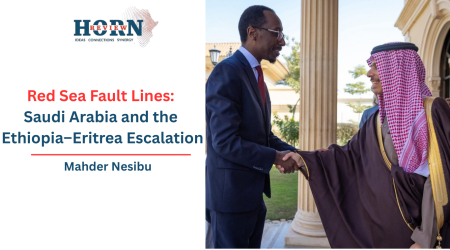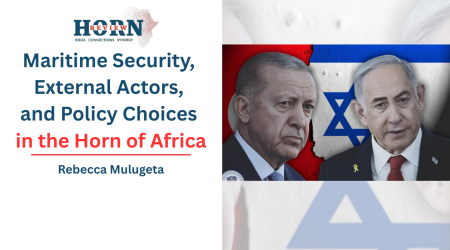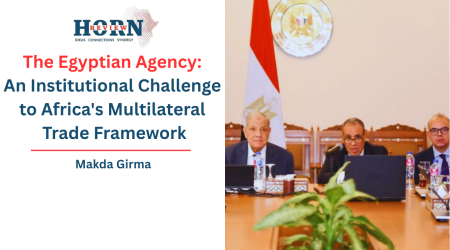
6
Nov
The Mogadishu Ban: Farmajo’s Return and Somalia’s Shifting Sands
The postponement of former President Mohamed Abdullahi Farmajo’s return to Mogadishu following a government ban on airport gatherings reveals more and exposes the insecurity latch on to Somalia politics as the nation approaches an electoral period. The incident come from authorities concerns over security and public order when Farmajo planned to launch his 2026 campaign means a sample of the extensive tensions defining Somali governance. This political move occurs against a setting of deteriorating security against Al-Shabaab militants and fundamental disagreements over the country’s democratic future, with the government advocating for a one person one vote model while significant opposition factions prefer an indirect electoral process.
During his presidency from 2017 to 2022, Farmajo polished a strategic alignment with Ethiopia that brought a significant departure from historical tensions between the neighbouring states. His administration actively courted Ethiopia as a key ally leading up to in the 2018 Tripartite Agreement that promised enhanced political, economic, and security integration between Somalia, Ethiopia, and Eritrea. This partnership envisioned as a mechanism to reduce external interference in regional affairs, manifest a notable shift from decades of mutual suspicion implanted in border conflicts. Farmajo’s government demonstrated unmatched willingness to collaborate on security matters, maintaining Ethiopian troops within the African Union mission framework. This security cooperation extended beyond peacekeeping to include joint efforts on border security and regional counterterrorism initiatives, creating a foundation for broader regional integration. The design scaffolding of Farmajo’s Ethiopia policy emphasized expedient engagement over historical animosities, recognizing Ethiopia’s economic and strategic importance as a neighbour seeking port access.
This approach yielded tangible benefits, including increased cross border trade and economic connectivity under the tripartite pact. The collaboration reached its symbolic apex when Farmajo, alongside Ethiopian Prime Minister Abiy Ahmed and Eritrean President Isaias Afwerki, received the 2019 Gandhi Peace Prize for their regional peace efforts.
Hassan Sheikh Mohamud’s return to power in 2022 began with promising continuity in cooperation with Ethiopia initially supporting his election and maintaining security collaboration against Al-Shabaab. Early in his term, the partnership appeared stable, with both governments expressing commitment to joint counterterrorism operations and regional stability. However, this cooperative phase proved fleeting, giving way to the most severe diplomatic crisis in recent bilateral relations when Ethiopia signed a memorandum of understanding with the region of Somaliland in January 2024.
Farmajo’s delayed return to Mogadishu shows a prudent revising rather than a political surrender. The government’s prohibition on mass gatherings at Aden Adde International Airport, citing legitimate security concerns in a city regularly targeted by Al-Shabaab, also serves as convenient political leverage to diminish a rival’s triumphant entry. In Somali political tradition, welcoming ceremonies function as visible demonstrations of support and influence, with large crowds showing a candidate’s viability and popular appeal. By preventing such a spectacle, the administration has temporarily thwarted Farmajo’s ability to generate campaign momentum through symbolic display. This administrative intervention reflects the increasingly charged atmosphere surrounding the 2026 elections, where the rules of engagement both literal and metaphorical are being contested in real time.
The government’s simultaneous ban on opposition leaders using gun-mounted vehicles in Mogadishu further illustrates the precarious security-political link defining this electoral cycle. While rationalized as a measure to reduce armed presence in the capital, opposition figures reasonably argue that such restrictions compromise their safety in a country where political violence remains endemic.
For Farmajo, whose power base includes significant clan support and nationalist elements, these restrictions create a strategic dilemma, how to demonstrate popular appeal while avoiding direct confrontation with state institutions or playing into narratives of instability. His response postponement rather than defiance suggests an approach aimed at casting the government as insecure and authoritarian while positioning himself as a responsible actor respecting official protocols, however politically motivated they may be.
Despite the symbolism of his impending return and his enduring political relevance, Farmajo faces significant structural barriers to recapturing the presidency in 2026. Somalia’s political system remains less a contest of popular will than a composite negotiation among clan constituencies, regional power brokers, and international partners. Hassan Sheikh Mohamud, wields the substantial advantages of his office, including patronage resources, influence over security services, and established relationships with international partners like the United States, European Union, and African Union. Furthermore, the fundamental disagreement over electoral methodology creates an additional hurdle while Hassan Sheikh advocates for a one-person-one-vote system that would favor his organizational capacity in secure regions,
Farmajo’s strengths lie in the indirect clan based delegate system that elected him in 2017, where strategic alliances and backroom negotiations determine outcomes. The opposition landscape further complicates Farmajo’s path to victory. While he remains a prominent figure with a dedicated base of support, particularly among segments of the Darod clan and nationalist circles, he must compete with other contenders including Puntland President Said Abdullahi Deni, former President Sharif Sheikh Ahmed, and former Prime Minister Hassan Ali Khaire all of whom would likely split the anti-incumbent vote.
Additionally, Farmajo carries political baggage from his previous term, including controversial attempts to extend his mandate in 2021 that alienated some former allies and reinforced perceptions of authoritarian tendencies. His associations with certain Gulf powers, particularly Qatar, while providing potential campaign resources, also risk alienating other international partners who view his alignment with suspicion, limiting his diplomatic flexibility. The Somali National Army, while demonstrating resilience in certain operations, continues to face substantial challenges in capacity, coordination, and sustainment.
Farmajo’s postponed return to Mogadishu condenses the broader challenges confronting Somalia as it navigates a transition among persistent insurgency and deep political divisions. His legacy of engagement with Ethiopia stands in polar opposites to the diplomatic ruptures that characterized Hassan Sheikh’s term. As the 2026 elections approach, the fundamental question remains whether Somalia’s political class can reconcile their differences sufficiently to conduct a credible electoral process while simultaneously confronting an adaptive and resilient insurgency.
The returning former president shows a significant variable in this equation, a polarizing figure whose presence energizes both supporters and opponents. While his comeback symbolizes the enduring vitality of Somali political competition, the structural and security headwinds make an eventual victory unlikely despite his substantial base of support. Ultimately, Somalia’s path requires not just navigating clan politics and electoral mechanisms, but establishing a foreign policy consensus on relationships with neighbouring states that acknowledges both strategic realities and sovereignty concerns.
By Samiya Mohammed, Researcher, Horn Review

